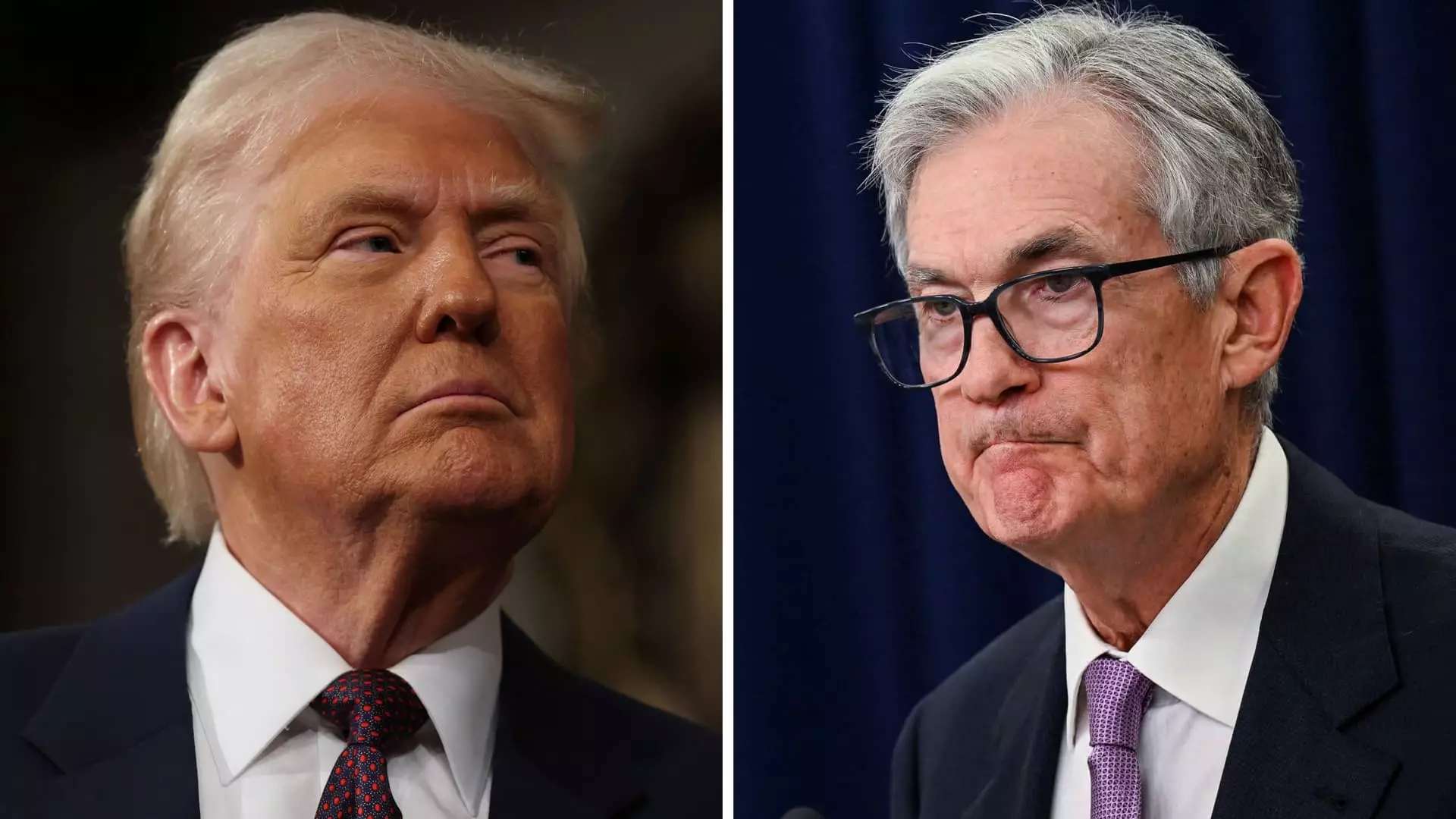In an alarming twist of governance, President Donald Trump has decided to publicly target Jerome Powell, the Chair of the Federal Reserve, amplifying an already fraying relationship. During a media briefing, Trump criticized Powell’s approach, suggesting that an understanding of the current economic landscape would warrant a reduction in interest rates. His rhetoric has escalated, with hints of potential dismissal echoing through the halls of power.
Critics of this behavior argue that it’s a dangerous path for Trump to tread. The Federal Reserve is designed to operate independently from political influence, which is critical in maintaining the stability of the U.S. economy. Trump’s disdain for Powell is palpable, and his recent assertions that “interest rates would be coming down if we had a Fed Chairman that understood what he was doing” reflect a troubling lack of respect for the intrinsic checks and balances that uphold American democracy.
The Chaotic Call for Action: A President’s Threat?
This week marked a particularly tempestuous phase in Trump’s campaign against Powell. Economic adviser Kevin Hassett hinted that the administration is indeed weighing the possibility of removing the Fed chair. The very notion of firing Powell signifies a significant departure from established norms. Powell himself has adamantly stated that he cannot simply be fired; he is protected by law until at least 2026. Yet, the mere suggestion that Trump’s team is considering this option undermines the autonomy necessary for effective monetary policy.
It raises urgent questions: Should a sitting president have the power to fire the head of the Federal Reserve based on disagreements over monetary policy? The answer, rooted in the principles of accountability and independence, is a resounding no. Such an action would set a perilous precedent, inviting future administrations to meddle with the economic stability that a centralized, independent body like the Fed is meant to safeguard.
The Perilous Political Gamesmanship
Trump’s aggressive rhetoric has reached a fever pitch, with social media posts insinuating that Powell’s “termination cannot come fast enough.” The use of derogatory nicknames, such as “Too Late,” further illustrates a chilling inclination toward personal attacks rather than engaging in constructive policy discourse. The situation grows increasingly volatile as Trump’s supporters delude themselves into believing that economic management requires adherence to his whims rather than sound fiscal principles.
Elizabeth Warren, a prominent Democratic voice, weighed in on the brewing storm, asserting that if a president can fire the Fed chair, there would be catastrophic effects on the markets. Her dire warning is not without merit; a destabilized Fed could trigger widespread uncertainty among investors and ordinary Americans alike, echoing the fears that accompany any economic upheaval.
As we observe the ongoing back-and-forth, it’s essential to recognize the implications of Trump’s style of governance. By treating economists like political adversaries, the danger lies in deepening the fractures within the very foundation of our financial system. Without a commitment to the integrity of the Fed, the President risks undermining public trust and inviting volatility in the very economic landscape he purports to bolster.
The Misalignment of Interests
Interestingly, Powell’s remarks have often hinted at the dual mandates of the Federal Reserve: to maintain price stability and to foster maximum employment. The tension between these goals is exacerbated when political agendas intrude. While Trump has attempted to characterize tariffs as a necessary economic tool, Powell has warned that such policies may inadvertently deepen inflationary pressures, complicating the Fed’s ability to strike a balanced approach.
Given this friction, one wonders whether Trump’s administration understands the intricacies of economic governance or whether they are merely wielding power with reckless abandon. The economic policy landscape cannot be dictated by short-term desires or the machinations of an individual; it must be informed by sound analysis, historical precedent, and a commitment to stability.
The world watches—and waits—grappling with the uncertainty of leadership in unchartered waters. The battle between Trump and Powell represents more than just a personal conflict; it encapsulates a shifting paradigm where economic stewardship is disrupted by political volatility. The ramifications of this clash will echo far beyond the Oval Office, potentially threatening to unravel the economic fabric that holds our society together.

